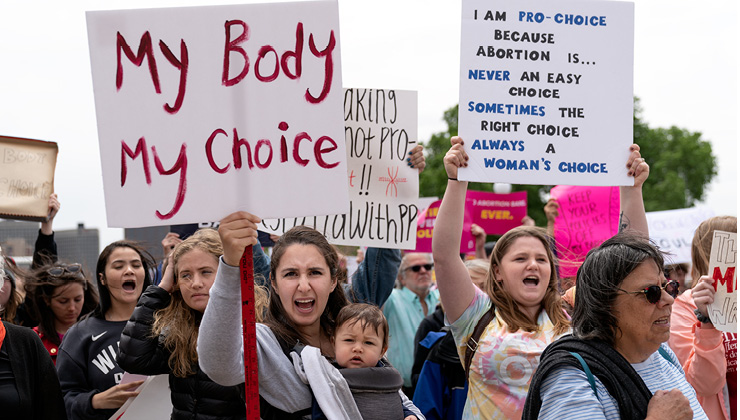Debra L. DeLaet, Shannon Golden and Veronica Laveta discuss how therapeutic justice seeks to minimise the risk of harm that survivors may experience from participating in trials, truth commissions, or other transitional justice mechanisms by prioritising individual survivors’ healing which can enhance transitional justice work by centring the needs, preferences, voices, and agency of survivors.
In the aftermath of widespread violence or human rights abuses, potential tensions exist between the goals of healing for survivors, conflict resolution, and human rights advocacy. Trauma rehabilitation or other therapeutic services are focused on individual-level positive change, whereas advocacy campaigns or formal transitional justice mechanisms are more typically focused on communal, national, or transnational social goods. Ideally these areas of focus are complementary, but it is also possible for these goals to work at cross-purposes.
A reliance on survivor stories or survivor participation may serve as a compelling part of a human rights advocacy or justice initiative. However, testimony in human rights or justice initiatives may cause significant harm to survivors if these initiatives are not focused on the healing needs of survivors or if they do not have adequate training on trauma sensitive interviewing. The potential risk for harm to survivors due to their participation in transitional justice initiatives is particularly high in cases involving gender-based violence (GBV) and women’s rights due to gender norms that predispose survivors of GBV to silence in the face of trauma.
Our chapter in Gender, Global Health, and Violence focuses on one organisation that is working to overcome these tensions, illustrating the potential benefits of “therapeutic justice.” For the Center for Victims of Torture (CVT), therapeutic justice is a conceptual bridge to link advocacy, justice, and healing goals in service of both human rights and health. Historically, much of CVT’s clinical work and advocacy or justice work has operated in distinct spheres, reflecting the broader distinctions in these fields of work. Clinical services to survivors are led by mental health professionals whereas the advocacy work has been led primarily by lawyers. CVT has been working to align their work so that goals of healing for survivors and anti-torture advocacy are complementary and synergistic.
Deeper integration has been possible through developing a survivor-centred, therapeutically-oriented approach to justice that fosters participation and agency of highly vulnerable survivors that are often excluded, marginalised, or harmed in transitional justice processes. Specifically, CVT has developed a trauma-sensitive approach to the documentation of survivors’ stories for inclusion in advocacy and justice initiatives, as well as to further survivors’ own justice- and healing-related goals. The clinical staff and the advocacy staff have worked to break down silos and co-design advocacy or justice initiatives in ways that are intended to have a direct positive therapeutic impact on survivors who choose to participate.
CVT’s work offers insights about the healing or therapeutic potential of pursuing justice for survivors. The concept of therapeutic justice offers a framework that emphasises individual healing, achieved through participation in justice and advocacy activities. Research on trauma rehabilitation and war suggests this emphasis on survivors’ healing also contributes to post-conflict reconstruction and peacebuilding. When therapeutic dimensions are incorporated into these initiatives, survivors can be less likely to experience psychological harms and, as a result, be more able to contribute to social repair. Further, healing can reduce the fear of the other that perpetuates patterns of intergroup violence.
We have previously noted that the case for therapeutic justice is particularly compelling in cases involving GBV and women’s rights. Survivors of GBV in armed conflict are often reluctant to participate in transitional justice initiatives for good reasons. They may experience re-traumatisation, stigmatisation, social marginalisation, unmet expectations of apology, lack of reparations, and ongoing exposure to violence as a result of their participation. The reluctance of survivors to participate due to these risks is compounded by beliefs that transitional justice initiatives may not be effective in achieving justice for survivors of GBV.
Gender norms that create stigma for survivors of sexual violence further contribute to the reluctance of survivors to discuss their victimisation in public settings, including trials and truth commissions. For example, constructions of femininity that emphasise sexual purity and modesty invoke feelings of shame that hinder survivors’ willingness to discuss sexual violence publicly. Survivors of GBV who testify in trials or before truth commissions can face social rejection, abuse, and violence from families and communities. Constructions of masculinity that emphasise male dominance and invulnerability make men who have survived sexual violence resistant to participate in justice initiatives that involve public testimony.
Another challenge is that trials and truth commissions sometimes use survivor narratives in instrumental ways. When this happens, survivors can feel exploited, threatened, re-traumatised, and even silenced because of their awareness of the risks of participation. Studies in a range of cases, including Rwanda, South Africa, and Sierra Leone, document the potentially harmful effects of public participation in trials or truth commissions. In such cases, survivors’ testimony before trials and truth commissions may actively hinder their healing. Trials and truth commissions that obtain and utilise the testimony of survivors in ways that are harmful can be seen as perpetrating new forms of psychological violence against survivors. This serves as an example of gendered entanglements of violence both in global health and in peace processes.
trials and truth commissions sometimes use survivor narratives in instrumental ways. When this happens, survivors can feel exploited, threatened, re-traumatised, and even silenced because of their awareness of the risks of participation
The goals of therapeutic justice can be accomplished through stand-alone initiatives that focus primarily on healing for survivors. Examples include trauma therapy (at both the individual and group level) that facilitates healing and is connected to justice-related goals of survivors. The provision of direct services and reparations to survivors also might contribute to therapeutic justice. Community-based social rituals that support the needs and preferences of survivors also could constitute therapeutic justice. Storytelling that provides survivors with opportunities to exercise agency in telling their own stories can be a powerful mechanism for pursuing therapeutic justice, as can other artistic forms that are practiced in the service of healing and self-expression for survivors.
Survivor needs can also be prioritised by incorporating therapeutic dimensions in other transitional justice initiatives, including criminal proceedings and truth commissions. Truth commissions can offer psychosocial healing interventions to individuals who offer public testimony. Trials can be modified in a variety of ways to enhance therapeutic justice, for example jurors can be offered evidence-based guidance about post-traumatic stress disorder and its effects on legal testimony and victims can be allowed to testify via videotape without having to confront the accused to minimise the risk of re-traumatisation. Developing protections against aggressive cross-examinations might also make it more likely that trials can serve therapeutic purposes for survivors.
Scholarship on gender and transitional justice suggests that justice initiatives that place the needs and preferences of survivors at the forefront will be more likely to challenge or circumvent the gendered barriers to justice and peace, including sociocultural norms that encourage survivors’ silence, especially in cases involving gender-based violence. This aligns with the idea that transformative justice rather than transitional justice is a more appropriate framework for fostering goals of equity, inclusion, and sustainable peace in societies emerging from violent conflict.
By offering a survivor-centred framework that strives for therapeutic justice, we point to the importance of approaches that empower and make space for survivors to exert agency through initiatives and practices that they help to define and shape and that contribute directly to their healing. Although our emphasis is on healing for individual survivors, it would be a mistake to conclude that therapeutic justice is individualistic. Rather, our contention is that therapeutic justice initiatives that centre healing for survivors are an essential component of justice initiatives seeking societal-level transformation.
The views, thoughts and opinions expressed in this blog post are those of the author(s) only, and do not necessarily reflect LSE’s or those of the LSE Centre for Women, Peace and Security.
Image credit: Flikr (CC BY-NC-ND 2.0)




